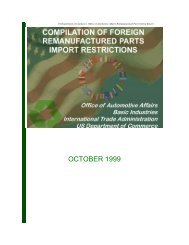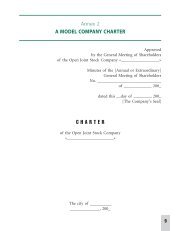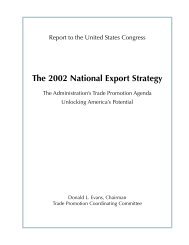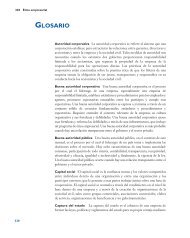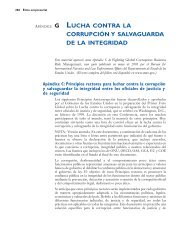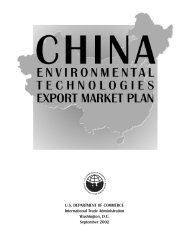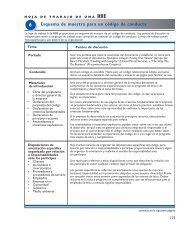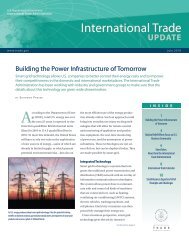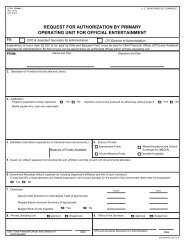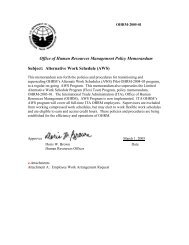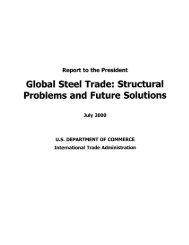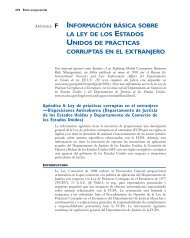The Key Building Blocks Of World Class Financial Centers
The Key Building Blocks Of World Class Financial Centers
The Key Building Blocks Of World Class Financial Centers
Create successful ePaper yourself
Turn your PDF publications into a flip-book with our unique Google optimized e-Paper software.
<strong>The</strong> <strong>Key</strong> <strong>Building</strong> <strong>Blocks</strong> <strong>Of</strong> <strong>World</strong> <strong>Class</strong> <strong>Financial</strong> <strong>Centers</strong><br />
This paper identifies the key structural factors that contribute to the creation of<br />
world-class financial centers. It does not purport to be an exhaustive review of all<br />
factors that support a major financial center, and as a result it does not examine<br />
financial markets infrastructure per se. Rather, its purpose is to highlight the<br />
essential broad institutional building blocks of a major global financial center.<br />
Executive Summary<br />
Rapid advances in technology, the free movement of a global and mobile pool of capital, and the<br />
need to service an increasingly global clientele are creating opportunities that call for the<br />
establishment of new world class financial centers. <strong>Financial</strong> centers such as New York, London,<br />
Hong Kong, and Singapore today face the same competitive pressures as the companies and<br />
investors they are attempting to attract. 1 As Anne O. Krueger, former First Deputy Managing<br />
Director of the IMF said in August 2006: “[t]echnological advances and lower transport and<br />
communications costs mean that in many cases, firms can choose where to set up business. In<br />
such cases they are likely to go where the procedures are most streamlined, where running a<br />
business is easier, and where they have most protection under the law. When it is expensive to<br />
establish a new firm in one country, a country that offers an easier and less costly process gains<br />
an important advantage. 2 <strong>World</strong>-class financial centers offer physical, legal, regulatory,<br />
communications and technological environments where the financial skills and innovation that<br />
serve client needs through market driven forces can thrive.<br />
Using New York, London, Hong Kong, and Singapore as models, we have identified certain<br />
common, and key, characteristics of world-class financial centers. And while none of the major<br />
financial centers dominates in all of these areas – and while no discussion of their development<br />
can ignore such historical, and relevant, factors as a favorable time zone, traditional trade routes,<br />
concentrations of regional wealth or the size of the local economy – the greater number of these<br />
characteristics a financial center possesses, the greater its chances of attracting and retaining<br />
world class talent, world class firms and, in turn, world class capital and investment.<br />
Many diverse factors contribute to the creation of a long-lived and reputable world-class financial<br />
center. <strong>The</strong>y reflect some combination of at least four important features: 1) a stable and open<br />
political and economic regime; 2) fair, transparent, efficient and reasonable legal, regulatory and<br />
tax regimes; 3) a skilled labor force and flexible labor regime; and 4) high quality physical<br />
infrastructure.<br />
1 For example, note competition between London and New York for hedge fund business. Economist,<br />
“Capitals of Capital”, August 31, 2006.<br />
2 Anne O. Krueger, First Deputy Managing Director, IMF, 10th St. Petersburg International Economic<br />
Forum, St. Petersburg, Russia, June 13, 2006.
<strong>The</strong> factors are:<br />
Open and fair financial markets<br />
Free flow of capital and a convertible currency<br />
Skilled workforce/flexible labor laws<br />
Prevalent use of a globally familiar language<br />
<br />
<br />
<br />
Fair, transparent, efficient legal and regulatory regime<br />
Sound and fair tax regime<br />
Implementation of international standards and best practices (IOSCO, BIS, etc.)<br />
Low cost of doing business (minimal “redtape” and bureaucratic inertia, etc.)<br />
High quality, reliable and appropriate physical infrastructure<br />
Stable political and economic environment<br />
Each of these factors is described in more detail below. Also included, as Appendix I, are various<br />
tables – compiled from independent sources – that compare and rank global financial centers in<br />
terms of a number of critical areas that tend to measure investment climate attractiveness to<br />
market participants.<br />
<strong>The</strong> <strong>Key</strong> <strong>Building</strong> <strong>Blocks</strong> <strong>Of</strong> <strong>World</strong> <strong>Class</strong> <strong>Financial</strong> <strong>Centers</strong><br />
Open and Fair <strong>Financial</strong> Markets<br />
An open and fair market in which domestic and foreign investors and financial services providers<br />
can compete on equal footing is an essential dimension of a world-class financial center. Rules<br />
that discriminate against, or otherwise limit the ability of, foreign participants to operate or<br />
compete in a market substantially reduce its desirability compared with its competitors. Faced<br />
with an increasing number of viable alternatives, global financial intermediaries and investors<br />
will opt to establish a presence and build long-term commitments in markets whose rules provide<br />
them national treatment and the fullest measure of market access.<br />
Just as important, open financial markets attract world-class best practices, cutting edge<br />
technology, and the financial sector efficiency, that together produce major financial centers. In<br />
turn, such open financial markets result in the strengthened institutional capacity and high quality<br />
regulation and supervision and transparency that investors and intermediaries in world-class<br />
markets demand.<br />
Free Flow of Capital and a Convertible Currency<br />
<strong>The</strong> ability of investors, whether international or domestic, to convert (on both the capital and<br />
current accounts) domestic currency into the currency of their choice is essential to attracting and<br />
providing deep and liquid markets for the large volume of financial flows characteristic of leading<br />
financial centers. By contrast, capital controls typically impose high administrative costs, distort<br />
investment decisions, and lead to the misallocation of capital.<br />
In particular, openness to international direct and portfolio investment is characteristic of worldclass<br />
financial centers. Portfolio investment provides a convenient, widely available – and<br />
growing – mechanism for long-term international investors to gain exposure to the global<br />
economy, while increasing the availability of equity capital in local markets. This helps to create<br />
and deepen liquidity in those markets and improve their standards of corporate governance.<br />
<strong>World</strong>-class financial centers are also characterized by policies that seek to attract direct<br />
SIA <strong>Key</strong> <strong>Building</strong> <strong>Blocks</strong> 2
investment. Such investment increases productivity, boosts economic growth and job creation,<br />
and produces other spillover effects that create a platform for a vibrant and innovative economy<br />
and creates the need for a major financial center.<br />
Skilled Workforce/Flexible Labor Laws<br />
<strong>The</strong> decision by financial services firms to locate in a particular place is directly linked to the<br />
depth of the pool of skilled workers across the full range of their hiring needs (from sophisticated<br />
post-graduates to office workers) available there, as well as to their freedom under local law to<br />
manage their business, including reasonable business flexibility to hire and dismiss employees.<br />
Skilled Workforce<br />
<strong>The</strong> availability of a large and continuingly renewed skilled and educated workforce is key to the<br />
development and long-term survival of world-class financial centers that depend on advanced<br />
technology and constant innovation. <strong>The</strong> expertise of its work force is the fundamental driver of<br />
the performance and competitiveness of the financial services industry.<br />
Indeed, a survey undertaken by the Corporation of London found that the availability of skilled<br />
personnel was the most important competitive factor for a financial center (see page 15). 3 <strong>World</strong>class<br />
financial centers possess secondary and university education systems that produce graduates<br />
of the highest quality in fields essential to financial innovation: e.g., mathematics, economics and<br />
information technology.<br />
Moreover, a large and continually growing pool of qualified graduates is necessary to develop<br />
and maintain the critical mass of accountants, auditors, lawyers, and other personnel who support<br />
sophisticated and innovative financial firms.<br />
Flexible Labor Laws<br />
Every world-class financial center draws a significant amount of its human capital from the local<br />
labor market. Attracting, but also maintaining, the best talent is critical to the creation of a worldclass<br />
financial center. Accordingly, labor laws that permit flexible hiring and dismissal of<br />
workers are a critically important feature of such a center. Inflexible labor markets stifle job<br />
creation, and can deter foreign investment. Moreover, inflexible labor markets impede the ability<br />
of firms to adjust to changes in the economic environment as a result of new technologies,<br />
economic shocks, and the impact of trade agreements.<br />
Prevalent Use of a Globally Familiar Language<br />
General knowledge by the working population of a globally familiar business language (typically<br />
English) is highly correlated with the success of major world-class financial centers.<br />
3 “<strong>The</strong> Competitive Position of London as a Global <strong>Financial</strong> Centre”, Corporation of London,<br />
November 2005.<br />
SIA <strong>Key</strong> <strong>Building</strong> <strong>Blocks</strong> 3
Fair, Transparent, Efficient Legal and Regulatory Regime<br />
It is widely acknowledged within the international economy that a fair, transparent, flexible and<br />
efficient legal and regulatory regime is fundamental to the success of a world-class financial<br />
center.<br />
Ill-conceived, unreasonable and burdensome laws and regulations clearly result in a hostile<br />
business climate and low rates of investment and productivity. But even a regime comprising<br />
good substantive laws and rules will drive investors and financial services providers away if those<br />
laws and rules are non-transparent and are applied unfairly, unevenly or inefficiently.<br />
Generally, a fair, flexible, and transparent legal system that is attractive to global investors and<br />
intermediaries will demonstrate the following characteristics: 1) wide latitude for private parties<br />
to contract; 2) a non-approval based regulatory system; 3) qualified regulators; 4) strong,<br />
consistent and predictable legal standards and remedies; 5) expeditious and transparent<br />
enforcement; 6) a well-trained, ethical judiciary and local bar (including a sufficiently large<br />
number of local lawyers); and 7) a legal system open to foreign legal practitioners.<br />
Legal and Judicial Framework<br />
A fair, transparent, flexible and efficient legal and regulatory regime must be (i) independent, (ii)<br />
permit market participants (based upon appropriate levels of sophistication) to assume the<br />
inherent economic risk of financial activity, (iii) insulated from political considerations, and (iv)<br />
free from corruption. Concerns about the existence of corruption, political interference, risk of<br />
expropriation, and excessive restriction on activities involving economic risk in a legal system<br />
can deter investment, and ultimately reduce prospects for economic growth and job creation.<br />
While not exhaustive, we note some of the more important elements below:<br />
A fair and impartial judiciary is critically important to investors. A fair legal and judicial system<br />
is needed to ensure certainty with respect to property rights and contract enforcement. Such a<br />
system is essential to normal and predictable commercial and banking operations.<br />
Comprehensive, prompt and predictable bankruptcy procedures are essential to investor<br />
confidence and the efficient allocation of capital. Effective and efficient bankruptcy procedures<br />
enable firms to exit a market, and permit capital and labor to be productively redeployed. Indeed,<br />
the very existence of such procedures encourages entrepreneurship, investment and risk-taking<br />
that might otherwise never take place at all.<br />
Rulemaking and Enforcement by Regulators and Supervisors<br />
In the Corporation of London survey cited above, a market’s regulatory environment was listed as<br />
the second most important factor in developing a world-class financial center. 4 Again, while not<br />
exhaustive, we list below characteristics of a regulatory environment that have proven over time<br />
to be conducive to the development of world class financial centers:<br />
<strong>The</strong> process of regulatory rulemaking must provide the regulated community with a meaningful<br />
opportunity for “notice and comment” to express its views and concerns about proposed<br />
regulation. A regulatory discipline mandating public notice and comment also typically improves<br />
the quality of regulation – as market participants and others offer their own, even if often<br />
competing, expertise, advice and even drafting suggestions, to regulators.<br />
4 <strong>The</strong> survey indicated that London, NY, Paris and Frankfurt, Hong Kong and Singapore were<br />
considered to have good regulatory environments.<br />
SIA <strong>Key</strong> <strong>Building</strong> <strong>Blocks</strong> 4
<strong>The</strong> expeditious and fair enforcement of legal and regulatory requirements is essential to investor<br />
protection, market confidence and financial stability – and therefore to attracting investment.<br />
Moreover, experience suggests that expeditious and fair enforcement is, in fact, a competitive<br />
advantage for cities vying to become world-class financial centers. Hallmarks of a sound<br />
enforcement regime include adequate regulatory and enforcement resources, apolitical and<br />
independent decision-making, consistent and non-duplicative enforcement actions, reasonable<br />
limitations on the conduct that gives rise to criminal sanctions, and procedural guarantees such as<br />
notice to defendants, right to counsel, clear explanations of alleged infractions, adequate<br />
opportunity to present evidence and cross examine witnesses, and the right of appeal in both legal<br />
and regulatory proceedings. Finally, consistency of procedure and predictable remedies<br />
(including respect for contractual arbitration clauses) are essential to the confidence that market<br />
participants place in world-class financial centers.<br />
Even the best legal and regulatory regime ultimately depends on the individuals who oversee and<br />
otherwise participate in it. Regulatory agencies must be staffed with well-trained, adequately<br />
compensated and motivated employees. Merit should play a greater role in advancement than<br />
seniority. Judicial officials must be well trained and adequately compensated. On the private<br />
side, well-trained local and international lawyers should be allowed to practice within the legal<br />
and regulatory framework. International lawyers should be eligible for membership in the local<br />
bar.<br />
<strong>The</strong> regulatory framework should be based, to the maximum degree possible, on familiar global<br />
best practices with an eye towards prevailing norms in other major markets. It is important that<br />
the regulatory system be as non-prescriptive as possible, in an effort to find that appropriate<br />
regulatory equilibrium where regulation not only protects investors and the stability of the system<br />
but is also viewed as a competitive market strength by facilitating innovation and taking into<br />
account the cost of regulations on firms and investors. Otherwise investors, issuers and<br />
intermediaries can be driven offshore, reducing the depth, liquidity and attractiveness of the<br />
marketplace.<br />
Experience suggests that a non-approval based regulatory system – one with transparent deadlines<br />
and which allows new financial products 5 to be brought to market without pre-clearance by the<br />
relevant regulatory authorities – is essential to attracting and retaining the most innovative and<br />
sophisticated financial market participants. A necessary complement to a non-approval based<br />
regulatory system is wide latitude for private parties to contract within a transparent and efficient<br />
legal and regulatory framework that respects contractual agreements.<br />
Finally, in today’s financial markets, where banks, securities firms and insurance companies are<br />
global and the products and services they offer are becoming increasingly similar, the value of<br />
consistent and coordinated supervision – both within and across national borders – is being<br />
increasingly recognized.<br />
5 For example, in the financial services, a legal and regulatory environment that promotes the<br />
development of such high value businesses as structured foreign exchange and derivatives<br />
products, securitized instruments, options and futures and investment management activities<br />
including mutual funds and hedge funds, and insurance and asset protection instruments such as<br />
trusts, can be especially conducive to the creation of a major financial center.<br />
SIA <strong>Key</strong> <strong>Building</strong> <strong>Blocks</strong> 5
Sound and Fair Tax Regime<br />
A sound, reasonable and fair tax regime, implemented fairly, generates funds that support public<br />
services, attracts capital investment, and otherwise works to achieve important public goals. By<br />
contrast, confused tax rules and/or poor and burdensome tax administration and enforcement can<br />
be a significant source of uncertainty to which business leads to difficulties in compliance and<br />
even to withdrawal from the market. An attractive tax system is typically characterized by the<br />
following 6 :<br />
‣ A balance between the rights of the taxpayer, whose rights should be<br />
ensured by due process and fair treatment, and the tax administration,<br />
which should have powers sufficient to administer and enforce the tax<br />
law in an efficient and evenhanded manner.<br />
‣ A general framework for procedures, including audit, collection and<br />
organization, consistent with an emerging market-oriented tax system,<br />
should be part of the law.<br />
‣ Be designed so that both the current economic situation and further<br />
economic transition can be accommodated.<br />
As a direct cost to a firm, taxes have a major impact on that firm’s decisions to hire and expand.<br />
In addition, tax treaties that provide for the elimination of double-taxation can also make a market<br />
more attractive to financial services firms and their clients.<br />
In a recent report on the impact of tax policy on foreign direct investment, the OECD concluded,<br />
“Moreover, estimates imply that the effects of taxation on FDI are quantitatively much less<br />
relevant than the effects of other policies that contribute to make a location attractive to<br />
international investors, such as openness, labour costs and regulatory hurdles.” 7<br />
International Standards<br />
<strong>Financial</strong> centers should have regulatory and legal regimes that demonstrate a strong government<br />
commitment to promoting international financial cooperation and stability, to improving the<br />
functioning of markets, and to reducing systemic risk. To this end, they should strive, at a<br />
minimum, to meet international norms, as appropriate. In this regard, we note the <strong>Financial</strong><br />
Stability Forums’ “Compendium of Standards” 8 which lists the various economic and financial<br />
standards that are internationally accepted as important for sound, stable and well functioning<br />
financial systems. Foreign companies and investors can and do use these standards as points of<br />
reference when judging a financial center’s efficiency, transparency and level of disclosure with<br />
respect to macroeconomic policies and data, market integrity, market structure and market safety<br />
and soundness. In addition, standards for financial markets utilities, such as a robust legal (as<br />
well as physical) infrastructure for the clearance and settlement of financial instruments,<br />
6<br />
Excerpted from “Tax Administration for Russia”, Richard Highfield and Katherine Baer, Fiscal<br />
Affairs Department, IMF, Conference on Post-Election Strategy, Moscow, April 5-7, 2000.<br />
7 “Taxation, Business Environment and FDI Location In OECD Countries”, Working Paper 502,<br />
July 24, 2006, Organization for Economic Co-operation and Development.<br />
http://www.olis.oecd.org/olis/2006doc.nsf/43bb6130e5e86e5fc12569fa005d004c/2d563284d1d82<br />
6d6c12571bc002c47dc/$FILE/JT03212208.DOC<br />
8 http://www.fsforum.org/print/index.cfm?pageid=48&type=6&CFID=592782&CFTOKEN=38006959<br />
SIA <strong>Key</strong> <strong>Building</strong> <strong>Blocks</strong> 6
compatible with prevailing norms in other major markets, is equally important for the<br />
development of a sophisticated market.<br />
AREA STANDARD ISSUING BODY<br />
Macroeconomic Policy and Data Transparency<br />
Monetary and financial<br />
policy transparency<br />
Code of Good Practices on Transparency in Monetary<br />
and <strong>Financial</strong> Policies<br />
Fiscal policy transparency Code of Good Practices on Fiscal Transparency IMF<br />
Data Dissemination<br />
Dissemination System<br />
Institutional and Market Infrastructure<br />
Special Data Dissemination Standard/General Data<br />
Insolvency WB ongoing effort WB<br />
Corporate governance Principles of Corporate Governance OECD<br />
Accounting International Accounting Standards (IAS) IASB<br />
Auditing International Standards on Auditing (ISA) IFAC<br />
Payment and settlement<br />
Core Principles for Systemically Important Payment<br />
Systems/Recommendations for Securities Settlement<br />
Systems<br />
Market integrity<br />
<strong>The</strong> Forty Recommendations of the <strong>Financial</strong> Action<br />
Task Force/9 Special Recommendations Against<br />
Terrorist Financing<br />
<strong>Financial</strong> Regulation and Supervision<br />
IMF<br />
IMF<br />
CPSS<br />
FATF<br />
Banking Supervision Core Principles for Effective Banking Supervision BCBS<br />
Securities Regulation Objectives and Principles of Securities Regulation IOSCO<br />
Insurance Supervision Insurance Core Principles IAIS<br />
A sound legal and regulatory framework will provide investor protection, and fair, efficient and<br />
transparent markets through the creation and enforcement of standards regarding insolvency,<br />
accounting, auditing, corporate governance, money laundering, and payments and settlements<br />
systems.<br />
Low Cost of Doing Business<br />
In today’s marketplace, financial services firms and their customers must be able to make and<br />
implement investment decisions quickly. Factors ranging from bureaucratic procedures to nontransparent<br />
rules to corruption can raise the cost of doing business and create an unattractive<br />
business environment. Such factors raise establishment costs, discourage entrepreneurship,<br />
market entry and business expansion, and weaken a market’s competitive position.<br />
Consequently, countries where the legislative and regulatory process is transparent, the<br />
bureaucracy is streamlined 9 , and the regulatory regime is not characterized by arbitrary decisionmaking<br />
have a significant competitive advantage, and are more attractive to financial services<br />
firms and investors.<br />
Importantly, the <strong>World</strong> Bank notes that, “Recent studies looking at the effect of regulation in<br />
Organisation for Economic Co-operation and Development (OECD) economies show that both<br />
9 For example, the <strong>World</strong> Bank’s “Doing Business Project” shows that starting a business in the<br />
US and UK takes 3 and 9 days, respectively. By comparison, it takes 5 days in Hong Kong, 88<br />
days in India, and 128 days in China.<br />
SIA <strong>Key</strong> <strong>Building</strong> <strong>Blocks</strong> 7
investment and the productivity of that investment are lower in countries where regulatory burden<br />
is greater. 10 ”<br />
High Quality, Reliable and Appropriate Physical Infrastructure<br />
Efficient, reliable, and modern infrastructure services are not only crucial for attracting<br />
investment and increasing international competitiveness, but serve to boost economic growth and<br />
job creation. In addition to necessities such as affordable and modern office space, stable and<br />
reliable sources of power generation (electricity, natural gas), the widespread availability of<br />
robust telecommunications, an efficient transportation system, a clean and adequate water supply,<br />
and sanitation services are among the important components of an attractive infrastructure. By<br />
contrast, insufficient roads, ports and power generation all can act as chokepoints that diminish<br />
the attractiveness and economic potential of an economy. Moreover, these bottlenecks can even<br />
negate a country’s significant low production cost advantage.<br />
Finally – and particularly in financial services where the competition in the global market for<br />
highly trained and qualified professionals is especially acute, quality of life has become a key<br />
consideration for attracting and retaining international employees. As a result, beyond reliable<br />
and modern infrastructure such as electricity, water, air and ground transportation, commercial<br />
office space, and telecommunications, world class medical care, superior educational<br />
opportunities for financial professionals’ children, proximate housing and physical security, as<br />
well as access to sophisticated leisure activities, are also extremely important.<br />
10 <strong>World</strong> Development Report 2005: A Better Investment Climate For Everyone, Chapter 5.<br />
SIA <strong>Key</strong> <strong>Building</strong> <strong>Blocks</strong> 8
APPENDIX I<br />
Open And Fair Markets Are <strong>The</strong> Essential Elements<br />
<strong>Of</strong> <strong>World</strong> <strong>Class</strong> <strong>Financial</strong> <strong>Centers</strong><br />
Treatment <strong>Of</strong> Foreign Securities Firms And Banks Under<br />
GATS <strong>Financial</strong> Services Agreement<br />
Majority Ownership National Treatment Economic<br />
Needs Test<br />
Securities Banks Securities Banks<br />
China 33% No Restrictions Limitations (2) Limitations (2) No<br />
Hong Kong 100% 100% No Restrictions No Restrictions No<br />
India 49%/51% (1) Limitations (1) Limitations Limitations Yes<br />
Japan 100% 100% No Restrictions No Restrictions No<br />
Singapore 100% (4) Limitations (4) Limitations Limitations No<br />
South Korea 100% (3) 100% No Restrictions No Restrictions No<br />
United<br />
Kingdom<br />
100% 100% No Restrictions No Restrictions No<br />
United States 100% 100% No Restrictions No Restrictions No<br />
(1) Securities: 49% for stock broking; 51% for firms engaged in underwriting; however,<br />
better treatment permitted in practice or under current law but not GATS-committed.<br />
Banks: Only through branch operations of the foreign bank; limitations on acquisition<br />
of Indian banks.<br />
(2) Securities: JV activities are limited in their scope of activities. Banks: Many market<br />
access and national treatment limitations to be phased-out by December 2006. While<br />
China’s WTO commitments allow foreigners to own 100% of a Chinese-incorporated<br />
bank, existing Chinese domestic regulation currently prohibits foreign investors from<br />
owning more than 20%, individually and more than 25% in aggregate of any stateowned<br />
Chinese bank.<br />
(3) Unclear commitment; though appears to permit 100% ownership; limitations on joint<br />
ventures.<br />
.<br />
(4) Securities: No right to register as a primary dealer; may only establish as a nonmember<br />
of the Singapore Stock Exchange; no right to acquire new or existing equity<br />
interests in SES members. Banks: GATS commitments do not allow commercial<br />
banks, only offshore and merchant banks permitted.<br />
SIA <strong>Key</strong> <strong>Building</strong> <strong>Blocks</strong> 9
Attracting Foreign Direct Investment Helps<br />
Build A Vibrant And Innovative Economy<br />
China<br />
Hong Kong<br />
India<br />
Japan<br />
Korea<br />
Singapore<br />
United Kingdom<br />
United States<br />
FDI<br />
Restrictions*<br />
80<br />
2<br />
36<br />
78<br />
61<br />
4<br />
6<br />
14<br />
*Ranks from 1 to 117 (1 = restrictions on ownership are rare)<br />
**1 = beneficial/encourage FDI<br />
FDI = Foreign Direct Investment<br />
Impact of<br />
FDI Rules **<br />
68<br />
5<br />
26<br />
82<br />
62<br />
1<br />
7<br />
10<br />
FDI (% of GDP)<br />
14.9<br />
277.6<br />
5.9<br />
2.1<br />
8.1<br />
150.2<br />
36.3<br />
12.6<br />
Source: <strong>World</strong> Economic Forum, <strong>The</strong> Global Competitiveness Report;<br />
UNCTAD, <strong>World</strong> Investment Report<br />
SIA <strong>Key</strong> <strong>Building</strong> <strong>Blocks</strong> 10 10
<strong>Financial</strong> <strong>Centers</strong> Provide An<br />
Educated and Skilled Workforce<br />
Flexible Labor Laws Allow Markets To<br />
Adjust To Economic Change<br />
Quality of<br />
Educational System<br />
Quality of Math &<br />
Science Education<br />
Difficulty of Hiring<br />
Index*<br />
Difficulty of Firing<br />
Index*<br />
China<br />
Hong Kong<br />
India<br />
62<br />
12<br />
25<br />
51<br />
10<br />
5<br />
China<br />
Hong Kong<br />
India<br />
11<br />
0<br />
33<br />
40<br />
0<br />
70<br />
Japan<br />
Korea<br />
Singapore<br />
United Kingdom<br />
United States<br />
24<br />
31<br />
1<br />
23<br />
18<br />
24<br />
25<br />
1<br />
47<br />
39<br />
Japan<br />
Korea<br />
Singapore<br />
United Kingdom<br />
United States<br />
28<br />
11<br />
0<br />
11<br />
0<br />
0<br />
30<br />
0<br />
10<br />
0<br />
* Index Ranks from 1 to 117 (1 = meets the needs of a competitive economy)<br />
* Higher values equal more rigid regulations<br />
Source: <strong>World</strong> Economic Forum, <strong>The</strong> Global Competitiveness Report<br />
Source: <strong>The</strong> <strong>World</strong> Bank, Doing Business in 2007: How to Reform<br />
SIA <strong>Key</strong> <strong>Building</strong> <strong>Blocks</strong> 11 11
China<br />
2005 Corruption Perception Index<br />
Hong Kong<br />
India<br />
Japan<br />
Korea<br />
Singapore<br />
United Kingdom<br />
United States<br />
Rank<br />
78<br />
15<br />
88<br />
21<br />
40<br />
5<br />
11<br />
17<br />
CPI<br />
Score*<br />
3.2<br />
8.3<br />
2.9<br />
7.3<br />
5.0<br />
9.4<br />
8.6<br />
7.6<br />
Legal Rights<br />
Index**<br />
2<br />
10<br />
5<br />
6<br />
6<br />
10<br />
10<br />
7<br />
Efficient Tax Systems Help Attract<br />
Capital Investment<br />
China<br />
Hong Kong<br />
India<br />
Japan<br />
Korea<br />
Singapore<br />
United Kingdom<br />
United States<br />
51<br />
2<br />
55<br />
59<br />
46<br />
4<br />
67<br />
107<br />
*10 = highly clean, 0 = highly corrupt<br />
**This index measures the degree to which collateral/bankruptcy laws facilitate lending. Higher score<br />
indicates laws are better designed to expand access to credit<br />
Ranks 1 to 117 in complexity (1 = least complex)<br />
Source: CPI Index, Transparency International Legal Rights Index;<br />
<strong>The</strong> <strong>World</strong> Bank, Doing Business in 2007: How to Reform<br />
Source: <strong>World</strong> Economic Forum, <strong>The</strong> Global Competitiveness Report<br />
SIA <strong>Key</strong> <strong>Building</strong> <strong>Blocks</strong> 12 12
China<br />
India<br />
Japan<br />
Korea<br />
Time Consuming And Costly Laws And<br />
Regulations Discourage Business<br />
Hong Kong<br />
Singapore<br />
United Kingdom<br />
United States<br />
* Index Ranks Economies from 1 to 175<br />
Doing<br />
Business<br />
(Overall Ease*)<br />
93<br />
5<br />
134<br />
11<br />
23<br />
1<br />
6<br />
3<br />
Starting A<br />
Business<br />
128<br />
5<br />
88<br />
18<br />
116<br />
11<br />
9<br />
3<br />
Closing A<br />
Business<br />
(# of Days) (Insolvency in Yrs.)<br />
2.4<br />
1.1<br />
10<br />
0.6<br />
1.5<br />
0.8<br />
1.0<br />
1.5<br />
Burdensome Red-Tape And Regulations<br />
Increase Costs To Business And Consumers<br />
China<br />
Hong Kong<br />
India<br />
Japan<br />
Korea<br />
Singapore<br />
United Kingdom<br />
United States<br />
Burden of<br />
Regulation*<br />
30<br />
2<br />
76<br />
31<br />
14<br />
1<br />
5<br />
20<br />
Bureaucratic<br />
Red-Tape**<br />
116<br />
*1 = least burdensome, **1 = least amount of time spent dealing with government officials<br />
67<br />
60<br />
7<br />
43<br />
15<br />
20<br />
35<br />
Source: <strong>The</strong> <strong>World</strong> Bank, Doing Business in 2007: How to Reform<br />
Source: <strong>World</strong> Economic Forum, <strong>The</strong> Global Competitiveness Report<br />
SIA <strong>Key</strong> <strong>Building</strong> <strong>Blocks</strong> 13 13
Physical Infrastructure Is A <strong>Key</strong><br />
<strong>Building</strong> Block In Attracting Investors<br />
China<br />
Korea<br />
India<br />
South Asia<br />
East Asia/Pacific<br />
Europe/Central Asia<br />
OECD<br />
Days Delay in Obtaining:<br />
Electrical<br />
Connection<br />
10.5<br />
3.9<br />
67.7<br />
55.2<br />
12.9<br />
12.5<br />
8.3<br />
Telephone<br />
Connection<br />
6.0<br />
3.4<br />
63.3<br />
65.0<br />
10.3<br />
13.8<br />
7.9<br />
China<br />
Hong Kong<br />
India<br />
Japan<br />
Korea<br />
Singapore<br />
United<br />
Kingdom<br />
High Quality Infrastructure Is A <strong>Key</strong><br />
Determinant <strong>Of</strong> Competitiveness<br />
United States<br />
Overall<br />
Quality<br />
69<br />
8<br />
78<br />
12<br />
23<br />
2<br />
22<br />
6<br />
Electricity<br />
Supply Quality<br />
80<br />
17<br />
94<br />
3<br />
27<br />
13<br />
14<br />
11<br />
Port<br />
Quality<br />
62<br />
4<br />
76<br />
12<br />
19<br />
1<br />
21<br />
10<br />
Air Transport<br />
Quality<br />
77<br />
5<br />
57<br />
12<br />
31<br />
1<br />
10<br />
2<br />
1 = among the best in the world<br />
Source: <strong>The</strong> <strong>World</strong> Bank, Doing Business in 2007: How to Reform<br />
Source: <strong>World</strong> Economic Forum, <strong>The</strong> Global Competitiveness Report<br />
SIA <strong>Key</strong> <strong>Building</strong> <strong>Blocks</strong> 14 14
Skilled Personnel And Regulatory Environment<br />
Are Important Elements <strong>Of</strong> London’s Success<br />
Factor of Competitiveness<br />
Availability of Skilled Personal<br />
Regulatory Environment<br />
Access to International <strong>Financial</strong> Markets<br />
Availability of Business Infrastructure<br />
Access to Customers<br />
A Fair and Just Business Environment<br />
Government Responsiveness<br />
Corporate Tax Regime<br />
Operational Costs<br />
Access to Suppliers of Professional Services<br />
Quality of Life<br />
Cultural & Language<br />
Quality/Availability of Commercial Property<br />
Personal Tax Regime<br />
Rank<br />
1<br />
2<br />
3<br />
4<br />
5<br />
6<br />
7<br />
8<br />
9<br />
10<br />
11<br />
12<br />
13<br />
14<br />
Average<br />
Score<br />
5.37<br />
5.16<br />
5.08<br />
5.01<br />
4.90<br />
4.67<br />
4.61<br />
4.47<br />
4.38<br />
4.33<br />
4.30<br />
4.28<br />
4.04<br />
3.89<br />
Source: Corporation of London, <strong>The</strong> Competitive Position of London as a Global <strong>Financial</strong> Centre<br />
SIA <strong>Key</strong> <strong>Building</strong> <strong>Blocks</strong><br />
-15-<br />
15



